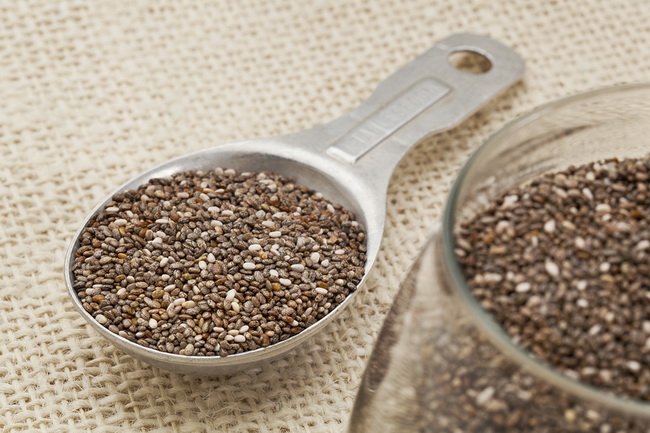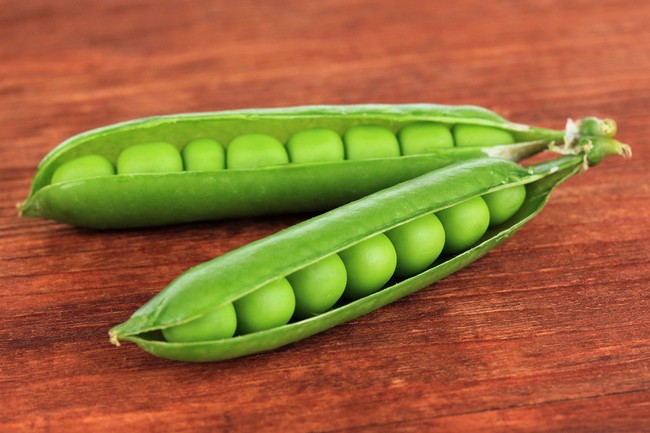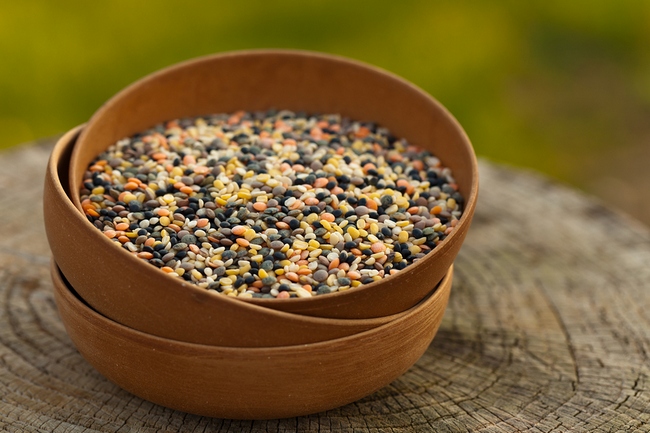- Make It Yourself Lavender Heart-Shaped Bath Bombs!
- 20 Things You Never Knew About “Down There”
- 12 Best Foods For Those Suffering From Arthritis Pain
- 12 Personal Hygiene Mistakes Almost Everyone Makes (Mom Never Told You About #4!)
- 15 Medicinal Plants And Herbs From The Cherokee People
- 12 Mind-Blowing Benefits Of Drinking Coconut Water During Pregnancy
- 12 Outstanding Winter Foods That Won’t Fatten You Up Like A Christmas Turkey
Protein Paradise For Vegetarians: 12 Non-Meat Sources Of Protein

Photo credit: bigstock.com
One of the things you learn in high school biology class is that proteins are the building blocks of life. They work as a source of fuel for the development of the body, and the building of body tissue and muscles. When the body digests protein, it breaks it down into amino acids. On average, women need 46 grams of protein and men need at least 56 grams of protein each day.
Although most people think of meat when it comes to protein sources, there are also plenty of other non-meat sources of protein, which are vital for those who wish to limit their meat intake or for vegans.
There are plenty of benefits to limiting your meat consumption. It helps to avoid high saturated fat and cholesterol levels that can lead to heart disease. Avoiding meat is also good for the environment, and saves a small fortune on grocery bills.
There are many foods vegans can eat to get all the protein their body needs without consuming meat. Although it might be difficult getting all the protein you need each day, it is possible with careful planning.
We made a list of the top 12 non-meat sources of protein. Although you might already be aware of some of these, a few of them might be new to you — giving you all the more reason to try them!
1. Hempseeds
Don’t worry (or don’t be disappointed) — no one will get high from hemp seeds. These seeds are only relatives to the medical marijuana many people consume. Hemp seeds contain all nine essential amino acids. They also have zinc, magnesium, calcium, and iron. For vegans, they are a rare source of essential fatty acids, like omega-3s, which can help naturally fight depression and are great for the heart.
2. Greek Yogurt
What makes Greek yogurt special is that it has the whey strained out. This makes a typical six ounce cup of Greek yogurt loaded with up to 20 grams of protein — much, much higher than traditional yogurt. This super probiotic food is also full of potassium, calcium, and a wide array of vitamins and minerals. Greek yogurt can be substituted for other fats when cooking baked goods. Eating more Greek yogurt can improve the immune system, prevent hypertension, lower bad cholesterol, and fight yeast infections.
3. Buckwheat
Buckwheat is not actually wheat at all, despite the name. In fact, it’s actually related to rhubarb. Most people eat seeds that have been ground into flour or cook the hulled kernels, which are then called groats, and are consumed similar to oatmeal. Buckwheat is super healthy and loaded with protein. If you have not yet tried it, you are in for a real treat!
Continue to Page 2
4. Lentils
Lentils, although they are a good substitute for animal protein, they are not a complete protein because they lack all nine of the essential amino acids. One cup of lentils has 18 grams of protein, as well as niacin, zinc, potassium, fiber, iron, phosphorous, and folate. Lentils come in different sizes, shapes, and colors and are readily available. Lentils will give you tons of energy, reduce the risk of coronary disease, and keep the digestive system working smoothly.
5. Peanut Butter
Peanut butter is great way to get a quick protein boost. This nut butter is a good source of fiber and heart-healthy monounsaturated fat. Peanut butter contains eight grams of protein in just two tiny tablespoons, along with vitamin B6, B3, E, folate, iron, zinc, magnesium, and manganese. You can make your own peanut butter at home easily without unwanted ingredients.
6. Edamame
Edamame are young soy beans that are removed from the pod before they mature and harden. Edamame is a complete protein that has all of the essential amino acids that the body needs. Just one cup of edamame has a whopping 17 grams of protein, in addition to fiber, iron, magnesium, vitamins K and C, as well as omega-3 alpha linolenic acid. Yu can buy them shelled or in the pod, fresh or frozen. Edamame also encourages beautiful hair and skin!
Continue to Page 3

Photo credit: bigstock.com
7. Peas
Green peas, often simply referred to as peas, are one of the best sources of vegetable protein. They are high in fiber, low in calories, and are loaded with potassium, magnesium, iron, zinc, vitamin C, A, B, and K. Just one cup of cooked peas has as many as 10 grams of protein. Buy them fresh or frozen, but avoid canned peas as they can be contaminated with BPA. Peas lower your risk of developing arthritis, diabetes, and heart disease.
8. Kidney Beans
Although many beans are a good source of protein, kidney beans are king! One cup of kidney beans has 15 grams of protein! They are almost a complete source of protein as well. They do contain all nine amino acids, but they fall just short of having enough of the proteinogenic amino acid methionine, so they technically cannot be considered complete. Kidney beans are also a terrific source of fiber, vitamin K and B6, iron, potassium, zinc, and magnesium. Kidney beans are also low in fat and cholesterol. These beans should be soaked in water for several hours before cooking.
9. Soy Milk
This is a popular milk alternative for those who are lactose intolerant, as well as for vegans. It is made by soaking dried soybeans in water, then grinding them with more water to make “milk.” Soy milk is simply overflowing with protein and vitamins. Just one tiny eight ounce cup of soy milk has eight grams of protein. You can find soy milk almost everywhere.
Continue to Page 4

Photo credit: bigstock.com
10. Tofu
Tofu, sometimes called bean curd, is a soy milk product and another excellent source of protein. A mere half a cup, just four ounces, has 10 grams of protein, eight of the essential amino acids, and is a good amount of calcium, iron, copper, zinc, vitamin B1, and selenium. Tofu can be bought fresh, dried, or fried. It has a neutral taste and will absorb whatever flavor you add to it. Tofu lowers your risk of developing diabetes, lowers cholesterol levels, and fights cancer.
11. Chia Seeds
For tiny little seeds, these pack a huge protein wallop. Two tablespoon of chia seeds have 9.4 grams of protein and are one of the best plant sources of omega-3 fatty acids. These tiny seeds also pack a powerful nutritional punch! They have tons of fiber, calcium, manganese, phosphorus, iron, zinc, and magnesium. Chia seeds can improve digestion, give you tons of energy, regulate blood sugar levels, and prevent the signs of premature aging. There are literally dozens of ways to use and eat chia seeds. Check out recipes online, and enjoy some today!
SEE ALSO: 15 Reasons Why You Need to Eat More Chia Seeds (Number 8 is Amazing)
12. Quinoa
This is an excellent source of protein as it contains all nine of the essential amino acids and has 8.14 grams of protein in one cooked cup. This popular grain also has iron, potassium, folate, phosphorus, magnesium, and fiber. Quinoa is cooked much like rice and can be eaten hot or cold. Quinoa can reduce inflammation in the body, lowering your risk of developing several types of disease including Alzheimer’s, arthritis, colon cancer, and heart disease.
Keep in mind that although not all of these proteins are complete proteins, that doesn’t mean they are not worth eating. The human body does not need every single essential amino acid in every bite of food. Most people can get enough protein on a vegan diet with proper planning. By eating a wide variety of foods, you are sure to get all the amino acids your body needs each day.
References:
Ncbi.nlm.nih.gov – plant-based diet

































